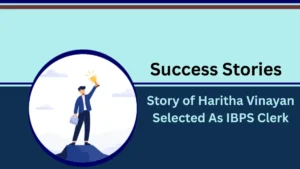Directions (1-15): In each of the questions given below, a sentence in direct speech has been given. You are required to choose the sentence with the indirect speech of the given sentence.
Q1. ‘We want our jobs back!’ we said.
(a) I said that we want our old jobs back.
(b) We said that we wanted our jobs back.
(c) We said that I wanted my job back.
(d) I said that I want my job back.
(e) None of these
Q2. He said to me, “My best friend at school became a nurse first, then a paramedic.”
(a) He told me that his best friend at school was becoming a nurse first, then a paramedic.
(b) He told me that his best friend at school has become a nurse first, then a paramedic.
(c) He told me that his best friend at school wanted to become a nurse first, then a paramedic.
(d) He told me that his best friend at school had become a nurse first, then a paramedic.
(e) None of these
Q3. Ken told Jim, “I had lived in four countries by the age of ten.”
(a) He said to Jim that he had lived in four countries by the age of ten.
(b) He said to Jim that he lived in four countries by the age of ten.
(c) He said to Jim that he was living in four countries by the age of ten.
(d) He said to Jim that he has been living in four countries by the age of ten.
(e) None of these
Q4. John said to his mother, “I shall go to bed now.”
(a) John told his mother that he should go to bed then.
(b) John told his mother that he will go to bed then.
(c) John told his mother that he would go to bed now.
(d) John told his mother that he would go to bed then.
(e) None of these
Q5. She said, “David doesn’t have any children.”
(a) She said David didn’t have any child.
(b) She exclaimed that David didn’t have any children.
(c) She requested that David didn’t have any children.
(d) She said David didn’t have any children.
(e) None of these
Q6. He said, “John doesn’t live in Japan anymore.”
(a) He said John didn’t lived in Japan anymore.
(b) He said John wasn’t live in Japan anymore.
(c) He said John didn’t live in Japan anymore.
(d) He said John didn’t live in Japan at all.
(e) None of these
Q7. He said, “She hasn’t eaten sushi before.”
(a) He said that she hadn’t ate sushi before.
(b) He said that she hadn’t eaten sushi before.
(c) He noticed that she hadn’t eaten sushi before.
(d) He said that she hadn’t eating sushi before.
(e) None of these
Q8. He said to me, “How long will you stay here?”
(a) He asked me how long I should stay there.
(b) He told me how long I would stay there.
(c) He asked me how long I would stay there.
(d) He asked me how long I will stay there.
(e) None of these
Q9. The man said to the officer, “Please help me.”
(a) The man said the officer to please help him.
(b) The man told the officer to help him.
(c) The man requested to the officer to help.
(d) The man requested the officer to help him.
(e) None of these
Q10. He remarked, “Two and two makes four.”
(a) He remarked that two and two makes four.
(b) He remarked that two and two would make four.
(c) He remarked that two and two made four.
(d) He suggested that two and two makes four.
(e) None of these
Q11. “I’ll have a cup of tea,” my father said, “because I’m not hungry.”
(a) My father said that he had had a cup of tea because he wasn’t hungry.
(b) My father said that he would have had a cup of tea because he wasn’t hungry.
(c) My father said that he will have a cup of tea because he wasn’t hungry.
(d) My father said that he would have a cup of tea because he wasn’t hungry.
(e) None of these
Q12. She asked me, “Are you happy in your new job?”
(a) She asked me if I was happy in my new job.
(b) She asked me if I have been happy in my new job.
(c) She asked me whether I was happy in my new job.
(d) She asked me if I had been happy in my new job.
(e) None of these
Q13. She said, “How often do you go to the cinema?”
(a) She asked me how often I go to the cinema.
(b) She asked me how often do I went to the cinema.
(c) She asked me how often I went to the cinema.
(d) She said to me how often I went to the cinema.
(e) None of these
Q14. “You had better not leave your room unlocked”, said my friends.
(a) My friends warned me not to leave my room unlocked.
(b) My friends reminded me not to lock my room.
(c) My friends advised me lock my room.
(d) My friends warned me not to leave my room unlock.
(e) None of these
Q15. “Don’t waste time”, the teacher said to the students.
(a) The teacher ordered the students not to waste time.
(b) The teacher forbade the students not to waste time.
(c) The teacher advised the students not to waste time.
(d) The teacher advised the students to not waste time.
(e) None of these
Solutions
S1. Ans (b)
Sol. Among the given options, only statement (b) is correct. If you are the person or one of the people who spoke, then the pronouns don’t change.
S2. Ans (d)
Sol. Among the given options, only statement (d) is correct. While the rest of the statements are grammatically incoherent.
S3. Ans (a)
Sol. Among the given options, only statement (a) is correct. While the rest of the statements are grammatically incoherent.
S4. Ans (d)
Sol. Among the given options, only statement (d) is correct.
Shall/will is replaced by would and now by then.
S5. Ans (d)
Sol. Among the given options, only statement (d) is correct. While the rest of the statements are grammatically incoherent.
S6. Ans (c)
Sol. Among the given options, only statement (c) is correct. While the rest of the statements are grammatically incoherent.
S7. Ans (b)
Sol. Among the given options, only statement (b) is correct.
While the rest of the statements are grammatically incoherent.
S8. Ans (c)
Sol. Among the given options, only statement (c) is correct.
For Interrogative Sentences, asked will replace the reporting verb said. Here is replaced by there in Reported Speech.
S9. Ans (d)
Sol. Among the given options, only statement (d) is correct.
For this Imperative Sentence, requested will replace the reporting verb said to make it indirect. And inverted comma will be changed by to.
S10. Ans (a)
Sol. Among the given options, only statement (a) is correct.
No change in Tense would take place if the sentence refers to something like universal truth/ habitual fact/ scientific findings.
S11. Ans (d)
Sol. Among the given options, only statement (d) is correct.
This sentence is in Future Tense; as rules of Narration, will is changed to would and Present Tense will be transformed into Past Tense.
S12. Ans (a)
Sol. Among the given options, only statement (a) is correct.
For Interrogative Sentence, if is used when there is no wh-question word.
S13. Ans (c)
Sol. Among the given options, only statement (c) is correct. While the rest of the statements are grammatically incoherent.
S14. Ans (a)
Sol. Among the given options, only statement (a) is correct.
While the rest of the statements are grammatically incoherent.
S15. Ans (c)
Sol. Among the given options, only statement (c) is correct.
Here the Imperative Sentence focuses on the advice of the teacher. For negative sentence, not to is used for inverted comma.





 GA Capsule for SBI Clerk Mains 2025, Dow...
GA Capsule for SBI Clerk Mains 2025, Dow...
 The Hindu Review October 2022: Download ...
The Hindu Review October 2022: Download ...
 Story of Haritha Vinayan Selected As IBP...
Story of Haritha Vinayan Selected As IBP...





